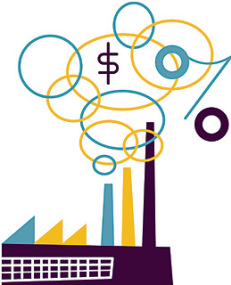Tag: US
-
The Commons: Restore or Build New?
Most discussions of the Commons assume that common-pool resources are supplied by nature, like the English fields that were available to locals for grazing, cultivation, and hay-cutting until the Inclosure Acts. However, it is equally possible to create new common pool resources for local control. Kojo Nnamdi spent an hour on his radio show yesterday…
-
Marriage is Magic
I made the mistake of teaching a set of essays on gay marriage at the end of the semester. I call it a “mistake” because I find it very difficult to give my traditional charitable interpretation to the work of folks like John Finnis and Robert George, who make arguments from a definition of marriage…
-
More War: The Intervention in Libya
The war in Libya happened so fast that most of the commentariat seemed to be caught flat-footed. The international community had apparently decided to go to war without properly vetting their decisions with bloggers! As a result, we got more than our fair share of bad arguments. I’ve been trying to formulate a position of…
-
Cap and Dividend
Scu pointed me to this discussion of a Cap and Trade dividend. One issue, which would also apply to a carbon tax + dividend: this would hit exports but miss imports. Contrast that with a plain-old VAT, which hits imports but is refunded on export. This would make our goods less competitive, while encouraging us to…
-

Using Basic Income to Sell a Carbon Tax
You know, I may have been looking at the Basic Income + VAT wrong. Instead of using a value-added tax to fund the basic income, perhaps we should use a basic income grant to sell a different policy… the carbon tax! Here’s what I have in mind: the US could adopt a revenue-neutral carbon tax.…
-
Does Basic Income + VAT “Solve” Immigration?
One of my favorite liberal policies is the basic income proposal. The idea is that all citizens have a basic guaranteed income, below which no one may fall. As the argument goes, this supplies more flexibility than basic provision of essential services, and renders recipients much more autonomous than they currently are, since the government…
-
Is more illegal immigration the best we can do?
Will Wilkinson on Bryan Caplan’s (false?) dilemma: Bryan Caplan lays down a challenge to liberaltarians: From what philosophic point of view is “maximizing growth + lots of redistribution + the immigration restrictions lots of domestic redistribution naturally encourage” better than “maximizing growth + no redistribution + free immigration”? Whether you’re concern for the poor is Rawlsian,…
-
Left for Dead: Equality of What, Equality for Whom?
There’s a pretty fantastic exchange happening in the blogosphere right now, started by Freddie DeBoer here and followed-up here. The substance of DeBoer’s criticism is that there are no legitimate “far left” bloggers, only center-left “neo-liberals” and the panoply of social conservatives, partisan Republicans, and libertarians. Thus, DeBoer charges, we have a blind spot, an…
-
Two Theories of Wikileaks, or Just One?
So far as I can tell, the news coverage of the latest diplomatic infodump breaks along a line orthogonal to ordinary US partisanship. Either: 1. There’s nothing new here, although the possibility of future exposure may hamper diplomatic efforts in the near term. or 2. Secrecy is bad, here are some secrets. Neither perspective is particular…
-
Appiah’s Honor
Perhaps a better title for Appiah’s book would be The Shame Code, because his account of the role of honor in policing behavior. For Appiah, an honor code is a set of principles for justifying respect, and his examples show that the drive to pursue of honor and avoid of dishonor can be extremely influential.…